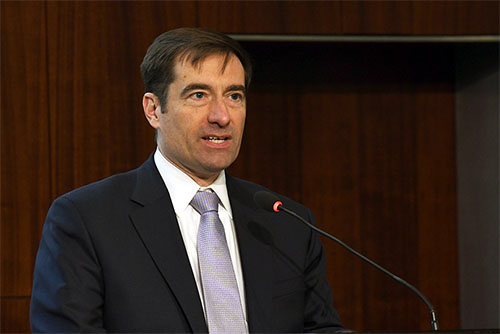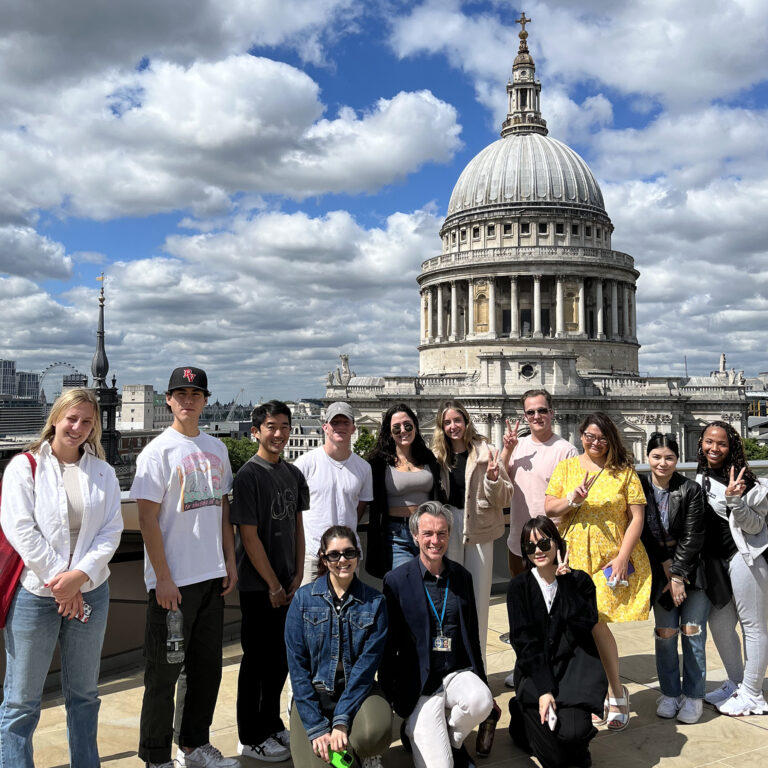
John C. Demers, U.S. Assistant Attorney General for the National Security Division (Photo/U.S. Department of Justice)
Three takes on the China initiative, from the USC U.S.-China Institute
Hosted by the USC U.S.-China Institute, it was the third virtual meeting of which views the China Initiative through a critical lens.
“Every Chinese American knows the Wen Ho Lee story,” says Clayton Dube, director of the USC U.S.-China Institute. Dr. Lee, a scientist at the nuclear weapons lab in New Mexico, was alleged to have stolen the design for America’s most advanced nuclear weapon at the time, the W-88. He was held in solitary confinement for nine months, as the federal case eventually fell apart. When Dr. Lee was ultimately released, the judge apologized.
That was 20 years ago. But Dr. Lee’s headline-grabbing story represents two concerns that are very much top of mind today. One, the U.S. Department of Justice’s renewed focus on economic espionage from China. And two, does this make “doing research while Chinese,” as Dube puts it, risky.
The Department of Justice speaks
On September 24, 2020, John Demers, Assistant Attorney General for National Security at the Department of Justice (DOJ), joined Dube for a wide-ranging conversation about the China Initiative, the two-year-old DOJ program to put a stop to economic espionage, which Demers has led since its inception. Hosted by the USC U.S.-China Institute, it was the third virtual meeting of its kind — the institute hosted discussions with Margaret Lewis, of Seton Hall University, on her paper, “Criminalizing China,” which views the China Initiative through a critical lens, and, separately, David Zweig, of Hong Kong Science and Technology University, who studies China’s talent recruiting efforts, which, Zweig believes, has garnered undue scrutiny from the DOJ. The intent of each internationally-attended webinar has been to peel back Justice Department policies and practices, which some find ominous and opaque, especially for university research.
Demers spoke with Dube and the web audience to clarify the role of the China Initiative vis-à-vis the scientific and academic communities, and to calm prevalent fears that a program so intentionally named intends to target ethnically Chinese students and scholars, regardless of citizenship — or, indeed, action. The DOJ’s focus, says Demers, is on behavior, not ethnicity — and that universities and the government alike have an interest in ensuring that researchers be honest about their roles, their contacts and their relationships while doing sometimes sensitive research, including research that might be funded by the U.S. government. Demers also emphasized that the U.S. needs to remain open to Chinese students and scholars and that he believed very few would be engaged in anything but approved study.
What the China Initiative looks like on campus
At the corporate level, the kind of international economic espionage the China Initiative targets feels familiar — IP theft and trade secrets, worth some $600 billion dollars, according to the Commission on the Theft of American Intellectual Property. (Most, but not all, is attributed to China). But at the research level, on the campuses of America’s world-class universities, the intent and approach feels murkier.
“Academic research is about sharing,” says Dube. “You’re going to publish it.” And so, federal
charges, in the academic community, are less often about overt theft — although that is a concern. Take the case against Xi Xiaoxing, a Temple University physics professor who, in 2015 — pre-China Initiative — was (falsely) accused of sending classified blueprints to China, when in fact he was sharing non-classified research with Chinese counterparts as a normal part of academic collaboration.
Rather, in practice the China Initiative has thus far seemed to focus more on various types of fraud — including tax fraud — as well as false representation and failure to disclose. The most notable of such cases is against Charles Lieber, Chair of Harvard University’s Department of Chemistry, who allegedly lied to officials about his work with the Wuhan University of Technology. He was indicted in June. Professor Franklin (Feng) Tao, of the Department of Chemical and Petroleum Engineering at the University of Kansas, faces similar charges for hiding his work with Fuzhou University in China.
Most researchers understand the need to disclose funding sources and research relationships, but some worry that research collaboration may be risky.
The ultimate balancing act
While the DOJ’s role under the China Initiative is to unearth economic espionage wherever it happens, American research universities face a more complex reality. To truly contribute to the global good, they must be open, collaborative, global institutions. But they are also beholden to the U.S. government, in particular, through federal grants from the likes of the National Institutes of Health (NIH) and the National Science Foundation (NSF).
The critical tension, says Dube, is between “the need to be open to be good” and “the need to be a little bit wary and careful” in order to comply with the law. And while no one is arguing against the threat of economic espionage — it is real, and it is costly — universities are ultimately independent entities, not an arm of the federal government. “We serve no political party,” says Dube. “We serve American interests but also global interests.”
And, the USC U.S.-China Institute’s role, in particular, is to dig in. “The institute’s mission is to inform public discourse, to bring in various perspectives on these questions,” he says. The China Initiative touches on three of the most important topics in the U.S.-China relationship — the security angle; the positives of scientific collaboration, what Dube calls “the stimulation of new thinking through people working together across national lines;” and addressing global needs through research and teaching, one of USC’s core missions. “All three of these things come to bear in this kind of discussion,” says Dube. “That’s why we’ve hosted these three events. And why we’ll continue to look at the China Initiative and at U.S.-China scientific exchange.”
